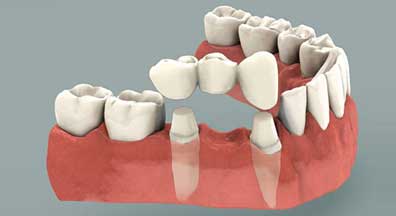Dental Impants
An artificial titanium root that is placed within your jaw bone to replace missing teeth.
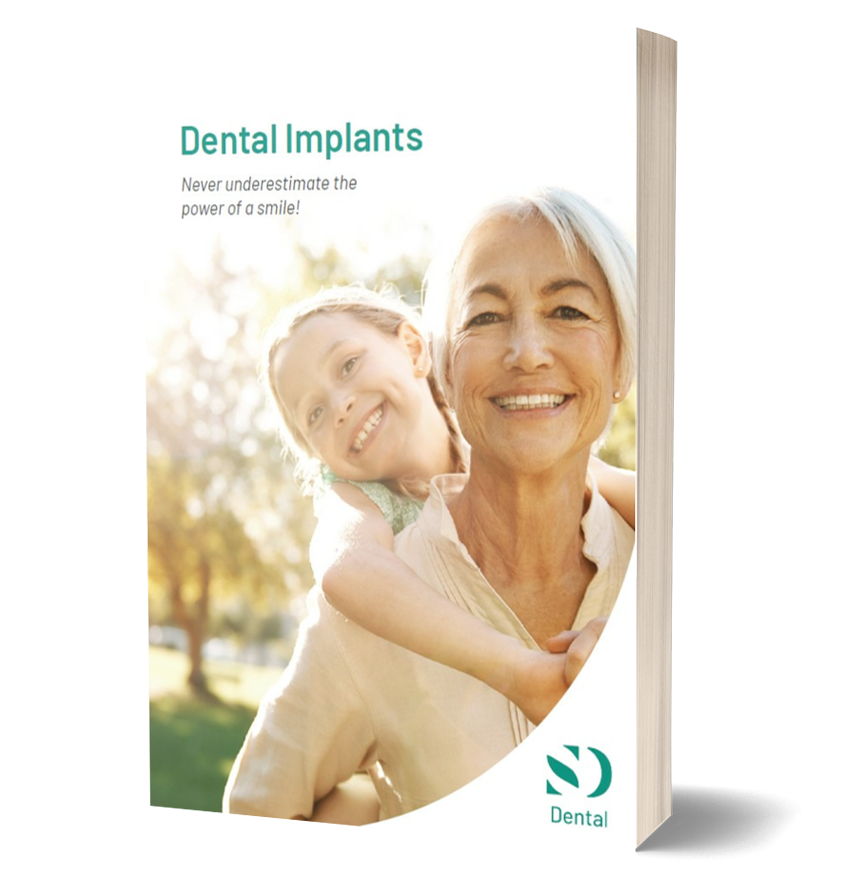
Free eBook
Enter your details below and you will receive our eBook via email.
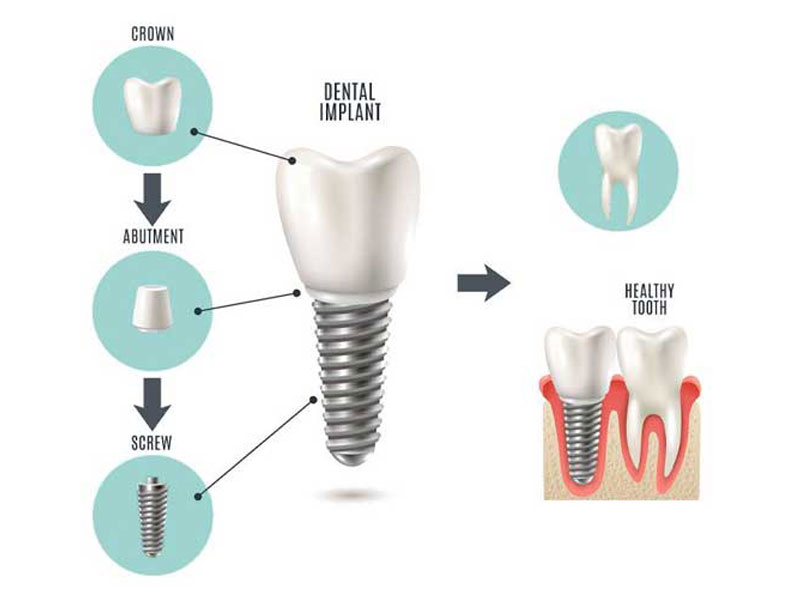
What are dental implants?
Dental implants are prosthetic tooth roots made of titanium that are inserted into the jawbone. Following this, a crown is attached to the implant, which gives it the appearance and function of natural teeth, making it an excellent long-term solution for missing teeth. Implants can be used to replace a single tooth, multiple teeth, or even a full jaw’s worth of missing teeth. Dentures can also be fixed by attaching clips to dental implants to prevent movement.
A dental implant consists of two major components: the crown, or “tooth portion,” and the implant, or “root part.” The implant is put in the jawbone and let to recover for three to four months before the tooth part/crown is fastened into place.
Several studies have demonstrated extraordinarily high long-term success rates of 95 to 98 percent, as well as good cosmetic and functional outcomes for dental implants.
Not only will replacing missing teeth with implants reduce the appearance of spaces between your teeth, but it will also prevent adjacent teeth from shifting and becoming crooked. Implants can also help maintain your jaw and prevent bone loss, preventing the “sunken face” appearance.
Why dental Implants? / Benefits of Dental implants?
Dental Implants are the closest thing you can get to a natural tooth again. Whilst there are many differences, dental implants are a more stable and natural treatment option than dentures.
For more information on the detrimental affects of missing teeth please click here.
- Dental implants feel much like real teeth. They eliminate the requirement for metal arms commonly found on dentures. These metal arms frequently put tension on neighbouring teeth, causing damage over time.
- As implant teeth are maintained by the titanium root, there is no need for a “flange” or denture extension into the palate or root of the mouth. Dentures often require this, and as a result, they are thicker in the mouth and inhibit correct food taste.
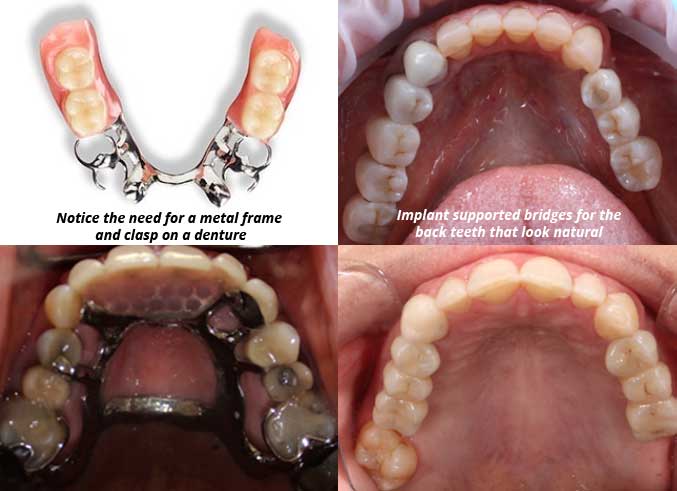
- To make a “th” sound, the tongue touches the upper row of teeth, while to produce a “v,” the upper row of teeth makes contact with the lower lip.
Teeth are also responsible for helping you pronounce the letters “g,” “s,” and “z” and the sounds “ch” and “sh.” - Dentures are a common tooth replacement option, but they don’t always help with speech since they slip, preventing the tongue from forming the necessary phonetic sounds.
- Dental implants, on the other hand, are a long-term option that enhances speech by allowing you to speak naturally.
Dental implants can replace one or more of your teeth without compromising the health of your neighbouring teeth by chopping them down or utilising them as bridge or denture anchors.
Notice the need to shave adjacent tooth structure down to accommodate a fixed bridge.
As dental implants are fused to the jawbone, the stimulation of forces during daily chewing helps to preserve the surrounding bone. In essence the function of the implants through chewing ‘tells’ the bone to stay. Whereas with dentures there is no stimulation to the bone to ‘tell’ the bone to stay. Shrinkage of the jawbone can then cause changes to the natural shape of our lips and face.
- Implants are often quite durable and can endure for many years. A single tooth crown, for instance, has a 97.4% 10-year survival rate.
- Because implants operate similarly to natural teeth, there is no need to remove them for cleaning, enabling you to go about your day without embarrassment or hassle.
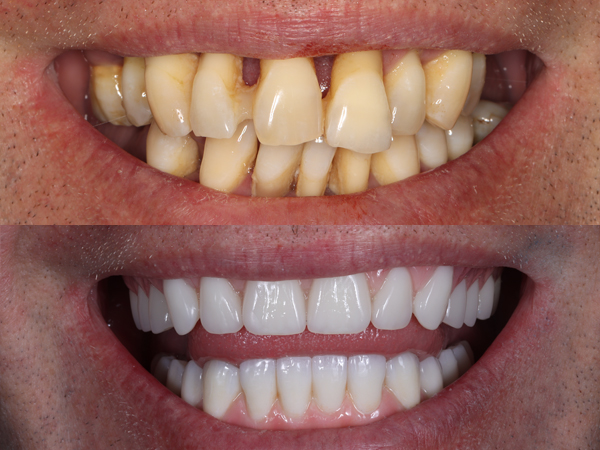
Before & After Dental Implants
All images shown are of actual cases performed by clinicians at SD Dental Cleveland.
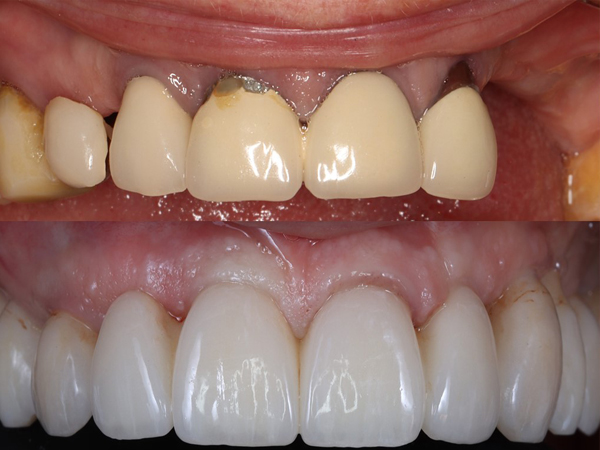
Before & After Dental Implants
All images shown are of actual cases performed by clinicians at SD Dental Cleveland.
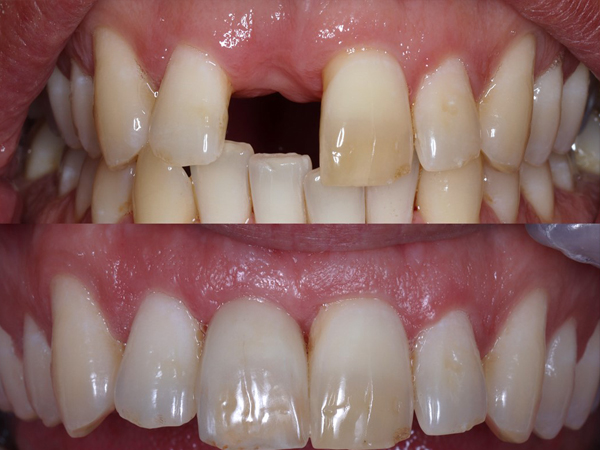
Before & After Dental Implants
All images shown are of actual cases performed by clinicians at SD Dental Cleveland.
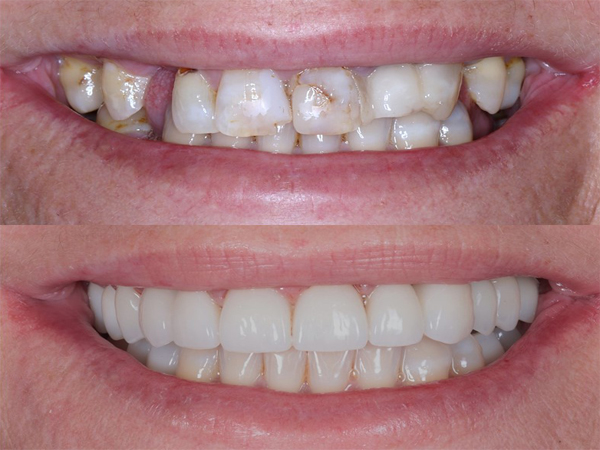
Before & After Dental Implants
All images shown are of actual cases performed by clinicians at SD Dental Cleveland.
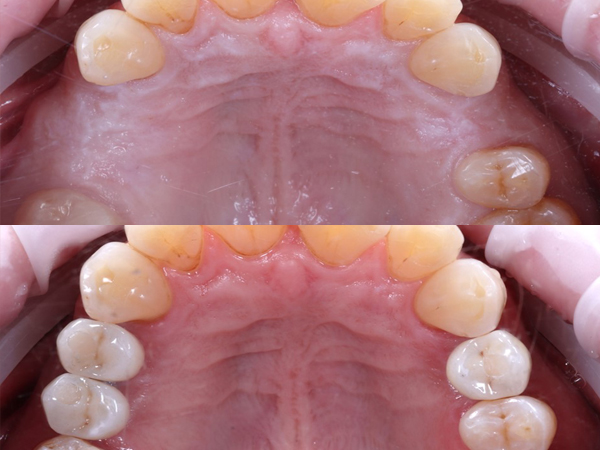
Before & After Dental Implants
All images shown are of actual cases performed by clinicians at SD Dental Cleveland.
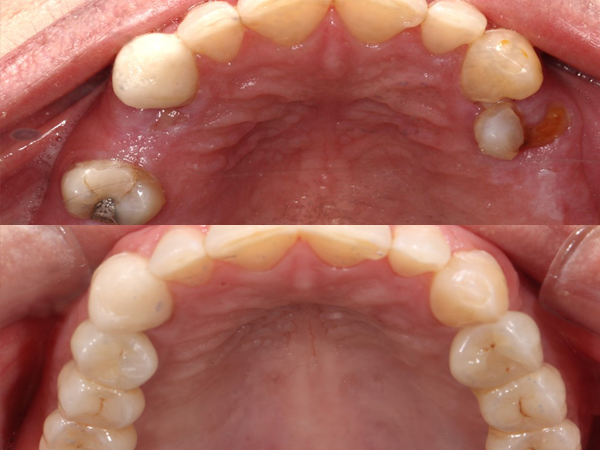
Before & After Dental Implants
All images shown are of actual cases performed by clinicians at SD Dental Cleveland.
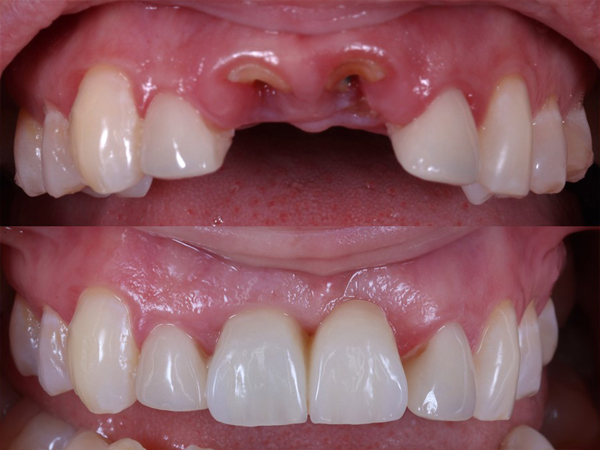
Before & After Dental Implants
All images shown are of actual cases performed by clinicians at SD Dental Cleveland.
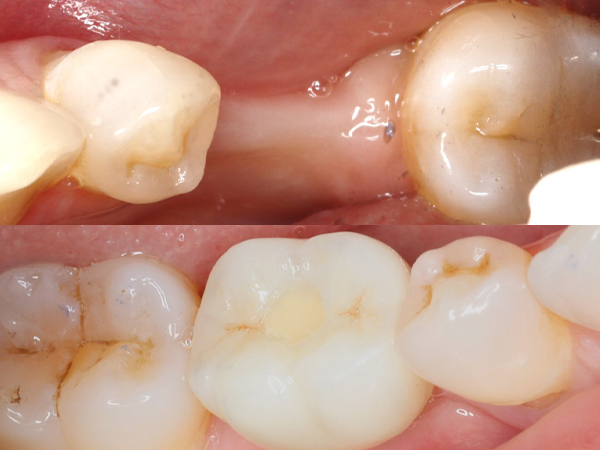
Before & After Dental Implants
All images shown are of actual cases performed by clinicians at SD Dental Cleveland.
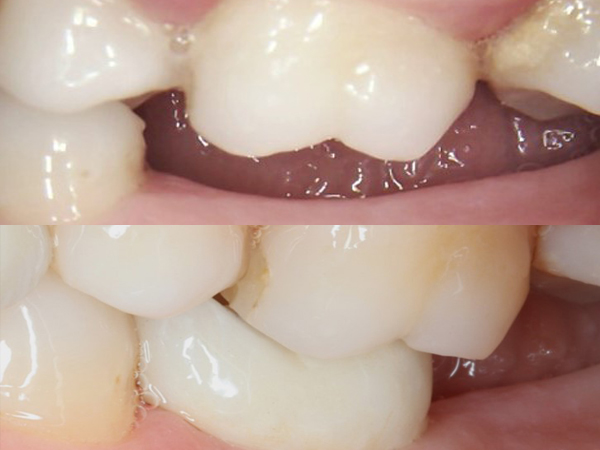
Before & After Dental Implants
All images shown are of actual cases performed by clinicians at SD Dental Cleveland.
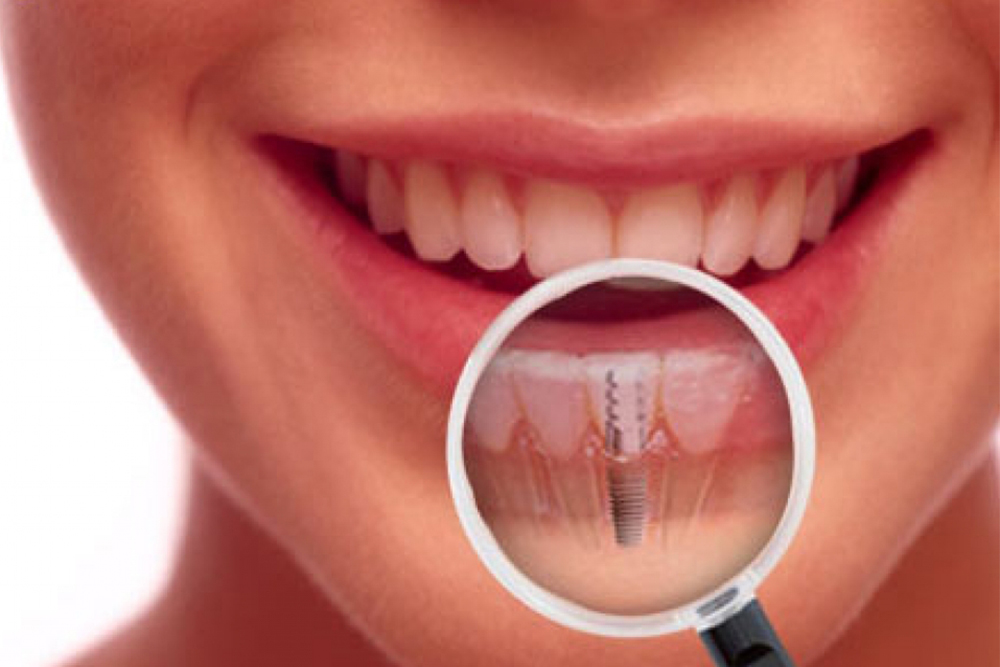
When is the best time to get dental implants?
It is better to get an implant as soon as you can after the tooth is extracted. In some cases, we can even place the implant immediately after we remove the tooth. Sometimes we may have to wait 6-8 weeks. The longer it is left, the less bone there is, making implant placement more difficult. To determine if you are a good candidate for dental implants, your dentist will do a complete examination of your bone levels.
Am I suitable for Dental Implants?
After we complete your comprehensive oral health examination and 3D scan, we’ll let you know if you’re a candidate for dental implants. Your mouth must be healthy and free of problems such as tooth decay or gum disease before we can begin the implant therapy.
Age is not a factor as long as you have adequate bone in your jaw to support the implant. We may prescribe bone grafting or bone augmenting procedures if there isn’t enough bone to support the implant. These factors will be discussed with you during your comprehensive check-up and consult.
How much are dental Implants?
Dental implant therapy differs depending on the circumstances of each patient. Some of our prices are given below. Because each patient’s circumstance is unique and different, the prices provided below are simply a guide. After we have analysed all of your records, we will give you with a more personalised quote.
Implants:
Single Implant + Final Crown (Back tooth) starting from $4500-5500
Single Implant + Final Crown (Front tooth) starting from $5500-6500
All-on-4® (A full set of teeth supported by 4 implants) from $20,000-35,000
Additional Treatments:
Sinus grafting process starting from $700-1000
Guided bone regeneration starting from $700-1000
Free Download
Download our implant book to find out everything you need.


